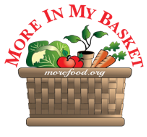In Season Produce
go.ncsu.edu/readext?921874
en Español / em Português
El inglés es el idioma de control de esta página. En la medida en que haya algún conflicto entre la traducción al inglés y la traducción, el inglés prevalece.
Al hacer clic en el enlace de traducción se activa un servicio de traducción gratuito para convertir la página al español. Al igual que con cualquier traducción por Internet, la conversión no es sensible al contexto y puede que no traduzca el texto en su significado original. NC State Extension no garantiza la exactitud del texto traducido. Por favor, tenga en cuenta que algunas aplicaciones y/o servicios pueden no funcionar como se espera cuando se traducen.
Português
Inglês é o idioma de controle desta página. Na medida que haja algum conflito entre o texto original em Inglês e a tradução, o Inglês prevalece.
Ao clicar no link de tradução, um serviço gratuito de tradução será ativado para converter a página para o Português. Como em qualquer tradução pela internet, a conversão não é sensivel ao contexto e pode não ocorrer a tradução para o significado orginal. O serviço de Extensão da Carolina do Norte (NC State Extension) não garante a exatidão do texto traduzido. Por favor, observe que algumas funções ou serviços podem não funcionar como esperado após a tradução.
English
English is the controlling language of this page. To the extent there is any conflict between the English text and the translation, English controls.
Clicking on the translation link activates a free translation service to convert the page to Spanish. As with any Internet translation, the conversion is not context-sensitive and may not translate the text to its original meaning. NC State Extension does not guarantee the accuracy of the translated text. Please note that some applications and/or services may not function as expected when translated.
Collapse ▲Farmers’ Markets are opening back up and it’s time to shop in season. Choosing in season produce is a great way to purchase what’s in stock and save money. In season produce is likely to be in abundance, and therefore is often sold at a lower price. North Carolina has several in season items during the month of March and April. Produce to look for include asparagus, broccoli, collards, greens, lettuce, mushrooms, peanuts, radishes, spinach, and of course sweet potatoes. Check out the North Carolina Fruit and Vegetable Availability chart before your next grocery trip.
Shop local and support your farmers. Sampson County offers More In My Basket At the Market, a program to familiarize consumers about how to shop, select and store produce, and make purchases using the EBT card. Join us for an educational session and farmers’ market tour.
Did you know select farmers’ markets across the state also have programs for seniors and recipients of the Women’s, Infants, and Children (WIC) program? Some farmers’ markets may also accept the Electronic Benefits Transfer (EBT) card and have a Double Bucks program. For more information about the EBT card contact North Carolina State University’s More In My Basket (MIMB) program.
MIMB staff can assist North Carolina residents throughout the state to apply for SNAP or answer questions about the EBT card. More In My Basket has a presence in several counties across the state. If you’re interested in MIMB programs, contact N.C. Cooperative Extension, Sampson County Center at 910-592-7161 to see what programs are offered. You can also find your county offices online under the “County Centers” option or by calling the MIMB program office.
More In My Basket staff can be reached by calling the toll-free numbers, Monday through Friday, from 8 a.m. – 5 p.m. Services are available in English and Spanish. Call MIMB today, they are ready to help you.
English Toll Free: 1-855-240-1451
Spanish Toll Free: 1-888-382-7105




